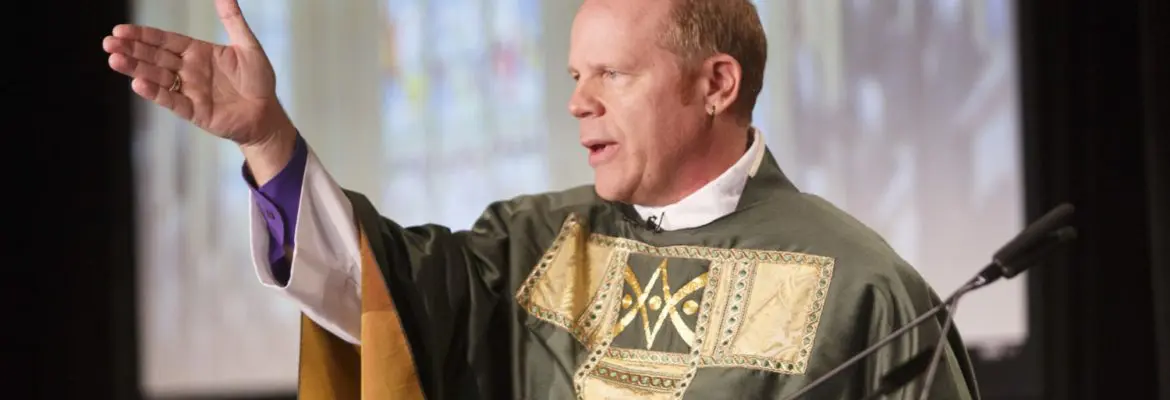
Dear Friends in Christ,
Difficult People. For the past three days, I have been attending a workshop called Dealing with Difficult People. It is offered by the Stitt Feld Handy Group, based here in Toronto, a well-known organization that trains mediators, coaches and negotiators, and teaches best practices for alternate dispute resolution. Over the years I have been taking their courses to hone my skills and learn all that I can about conflict resolution. And slowly but surely, I am working my way through their Executive Certificate in Conflict Management.
I have to admit I found the title of the course enticing. It’s tempting to think that the issue is difficult people. In reality, what is warranted is to have difficult conversations.
Resolving conflict is not an easy endeavour for most of us. Many of us avoid it, run from it, duck when it’s coming, deny its existence and hope that it will just go away. For some of us, these patterns were established in our families of origin. We learned some helpful lessons along the way in school, on the sports field, at work, and in our relationships with friends and partners and spouses. Facing a conflict with a heart, mind and soul set on resolution and reconciliation is not an easy thing, but it is required from time to time in our journey of faith. Jesus faced the Pharisees, Paul kept writing to the Church in Corinth, Job kept at it with his friends, Moses walked with a people who were known to be a little stiff-necked. Ruth convinced Naomi. Jacob and Esau walked the rest of the way together. Joseph forgave his brothers and saw the hand of God in it. Isaac and Ishmael buried their father together. And the biblical list goes on.
It has been my experience that having difficult conversations, when they are done with compassion and understanding, can lead to transformation, just as Jacob wrestled with God to become Israel. Sometimes our conflicts remain unresolved and yet we are called to keep things open for the Holy Spirit to intervene. Sometimes the conflicts that we are a part of are generational. We did not start the dispute, but we are called to help resolve it. In the motion of striving to resolve, we sometimes venture into the realm of deep emotions like grief, anger, upset, betrayal, fear, rage and more. Given this reality, it’s no wonder we avoid disagreement.
Think about this. There are probably a handful of people in your life to whom you say with ease… I love you. Probably fewer in number are those who have ever witnessed your heartfelt grief, your tears of sorrow, your unbridled anger. Which one is more intimate? Our emotions simply are, like our arms and legs are. It’s how we use them that makes the difference.
Scripture reminds us that If another member of the Church sins against you, go and point out the fault when the two of you are alone. Matthew 18.15. It is wise to bridle our tongue and even our bodies. James 3.2. A soft answer turns away wrath, but a harsh word stirs up anger. Proverbs 15.1. Bearing with one another and, if one has a complaint against another, forgiving each other; as the Lord has forgiven you, so you also must forgive. Colossians 3.13. Blessed are the peacemakers, for they shall be called children of God. Matthew 5.9.
I invite you to consider those difficult conversations in your life that you have had, and those you still need to have. And I urge you to offer them before the God of Grace in your prayers – asking for wisdom, insight, patience, courage, and strength. Practice forgiveness in order to hear and say hard things. And remember that every “difficult person” is still a beloved Child of God. Indeed, sometimes the difficult person is you.
Yours in Christ,
The Rt. Rev. Andrew Asbil
Bishop of Toronto
PS. I am so looking forward to tonight’s FaithWorks 25th Anniversary Celebration, and I hope many of you will join me!